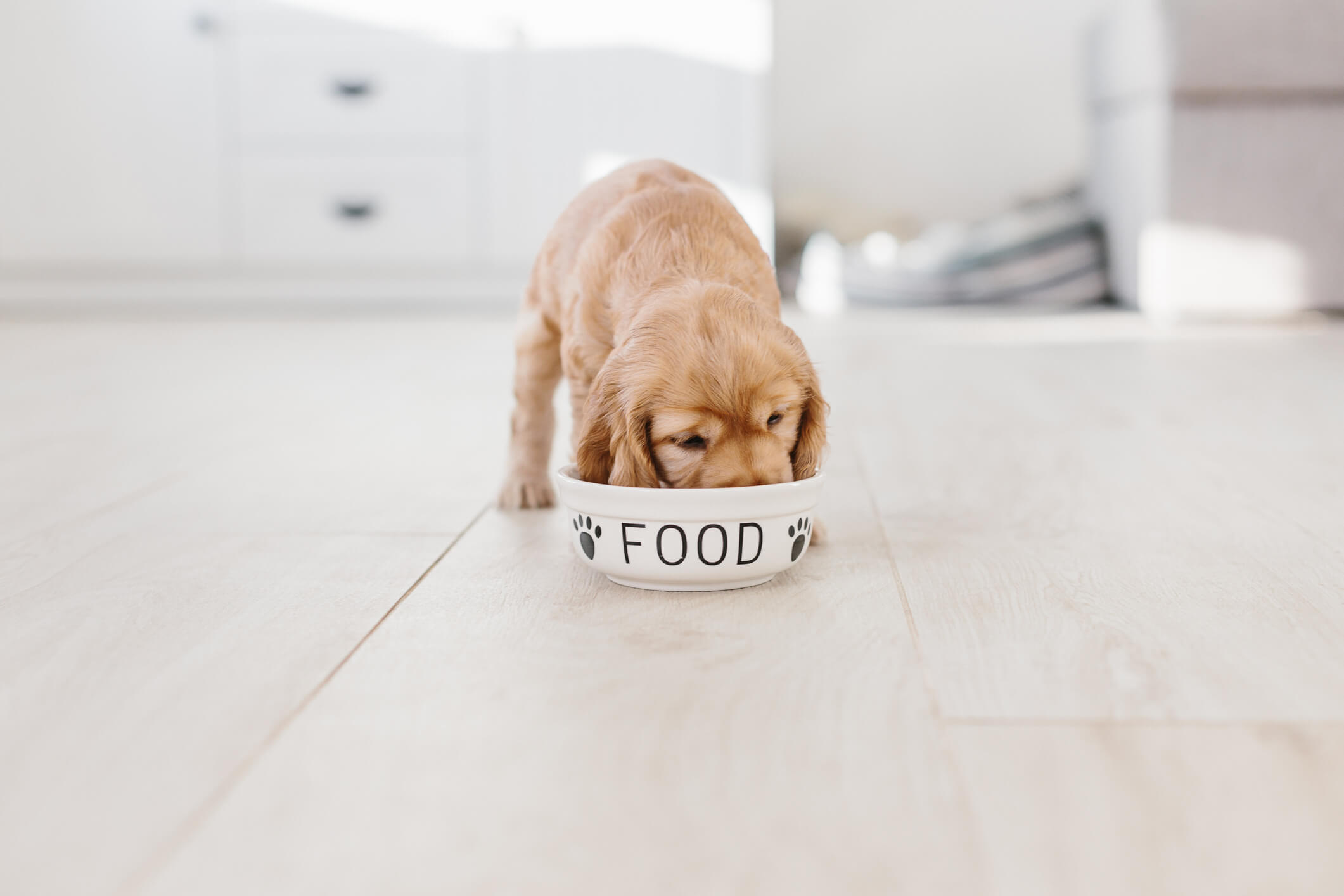
4 Tips to Help Your Puppy Develop Good Digestive Health
The popular saying goes, “You are what you eat.” The same can be said for a puppy’s digestive system! Low-fat proteins and good bacteria lead to a healthy gut, while the opposite can have disastrous results on your pup’s health as they age.
Fortunately, it’s pretty easy to set your puppy up for good health—their digestive system included. Here are a few tips for providing your puppy the recipe for digestive success.
Why good digestion is a top priority
Dog owners should prioritize their puppy’s digestive health because it leads to an overall healthier lifestyle. The absorption of nutrients in the gastrointestinal (GI) tract is directly related to how effectively your furry companion uses energy. Dogs with good digestion are better at metabolizing carbohydrates, proteins and fats that are needed during playtime. A healthy gut means your pup is ready to conquer long walks and stay sound asleep through the night.
Puppies with healthy digestive systems also tend to have stronger immune systems. A good balance of helpful bacteria in the small and large intestines prevents harmful, disease-causing bacteria from taking over. Healthy gut microbiomes protect puppies from a range of bacteria that cause digestive distress, including common strains like E. coli and salmonella. Additionally, a large portion of your pup’s immune cells also live in the colon and can be impacted by bad bacteria. For this reason, promoting the growth of good bacteria not only aids digestion but your pup’s overall health!
Good habits that boost GI health
If you’ve recently adopted a puppy and want to ensure their digestive system grows strong and stays balanced, use these four simple tips.
- Probiotics: Dog owners can instantly start boosting their pup’s digestive health by adding a daily probiotic to their diet. Probiotic supplements contain billions of good bacteria that aid the process of breaking down and absorbing food in the intestinal tract and prevent bad bacteria from growing too strong. Puppies won’t always get the right level of probiotics from kibble alone. Adding a probiotic supplement regulates your puppy’s gut microbiome so they can get the most out of their diet. Consult your veterinarian for guidance on how to choose and administer probiotic supplements.
- Prebiotics: This type of supplement is similar to probiotics but works a little bit differently. While probiotics add helpful bacteria to a puppy’s digestive system, prebiotics encourage bacterial growth by providing nutrients like fiber for the microorganisms. Prebiotics will help your pup naturally produce their own bacteria rather than simply adding it to their diet. Many probiotic supplements contain prebiotics, but you should research to be sure.
- Healthy diet: Of course, good digestion depends on more than a supplement. Since dogs are meat lovers, it’s easy for their owners to give them any meat product and call it a day. However, the type of protein and the other nutrients your dog ingests can make or break the balance of good bacteria in their digestive tract. Vets recommend a canine diet that’s high in protein and low in fat and that leaves out harmful ingredients. Dogs who eat the right foods are more energetic, maintain proper digestive health and, most importantly, experience the most happiness in their life.
- Regular exercise: In addition to food, puppies need regular exercise to keep their digestive systems functioning at top performance. The more energy they burn, the more calories they’ll need. Every time your dog plays, their body pulls calories and nutrients from the small intestine. On the other hand, puppies with a sedentary lifestyle disrupt the digestive cycle and are more likely to experience health problems. Keep your puppy active with daily walks, play sessions and plenty of time spent outdoors.
Know the symptoms of digestive problems
The proper balance of exercise, supplements and healthy food are all vital components of every pup’s lifestyle. A healthy digestive system is especially important for puppies because they have weaker immune systems compared to adult dogs. Overwhelming amounts of harmful bacteria in the gut leave your pup susceptible to diseases that might become fatal.
If you’re the proud owner of a new puppy, take the time to familiarize yourself with the warning signs of indigestion. Thankfully, most symptoms are easy to spot. Puppies with digestive issues can experience both diarrhea and constipation. The presence of diarrhea should alarm dog owners because it means their furry companion isn’t absorbing enough water. Dehydration rapidly deteriorates your pup’s health and requires an immediate visit with your veterinarian.
Other symptoms might slowly develop over time, like excessive weight gain and lethargic behavior. That’s why dog owners should consistently monitor their puppies for signs that something’s not right. Symptoms that are ignored will only get worse, so speak with a vet the second you detect a problem with your pup’s digestive system.
Puppies depend on their loving owners to provide all the nutrients, exercise and probiotics they need for a healthy gut. The digestive system deserves special attention because it establishes a solid foundation for a dog’s overall health. Following these simple tips and a vet’s guidance will put your furry companion well on their way to a happy, healthy life.



